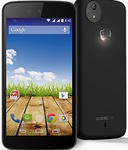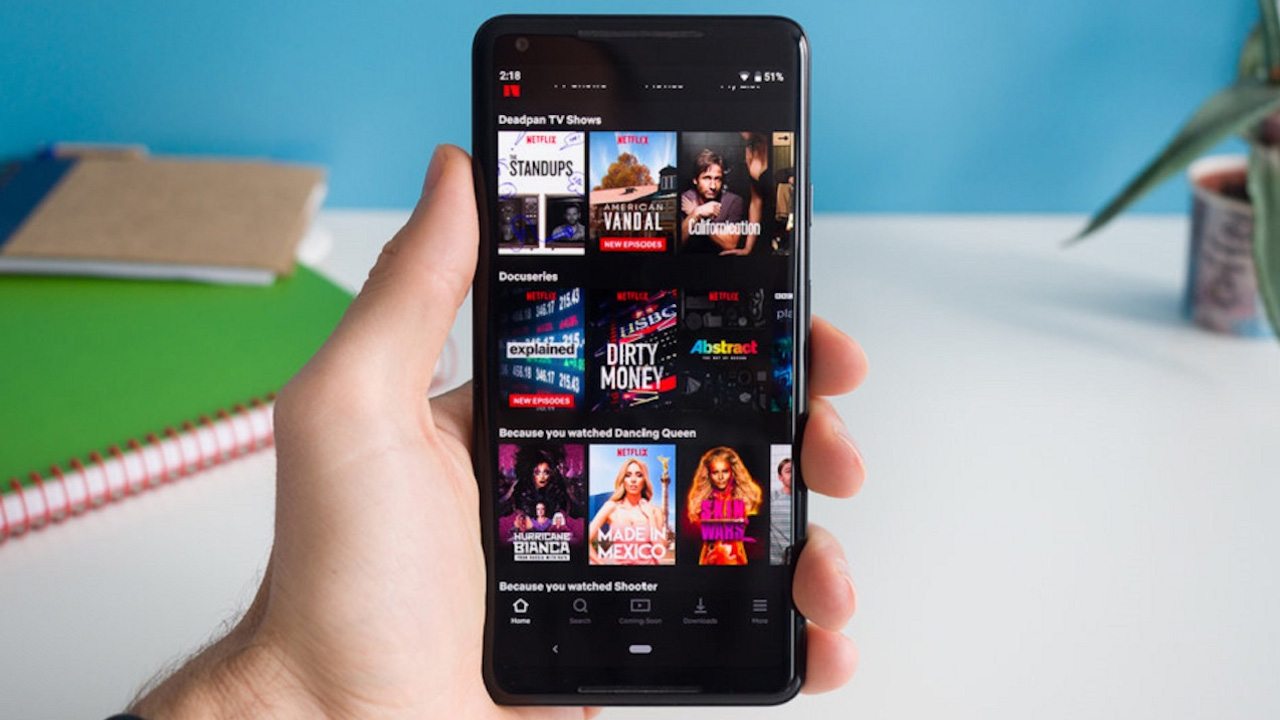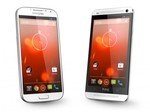Eufy Wi-Fi Smart Lock review - Touch to unlock - Android
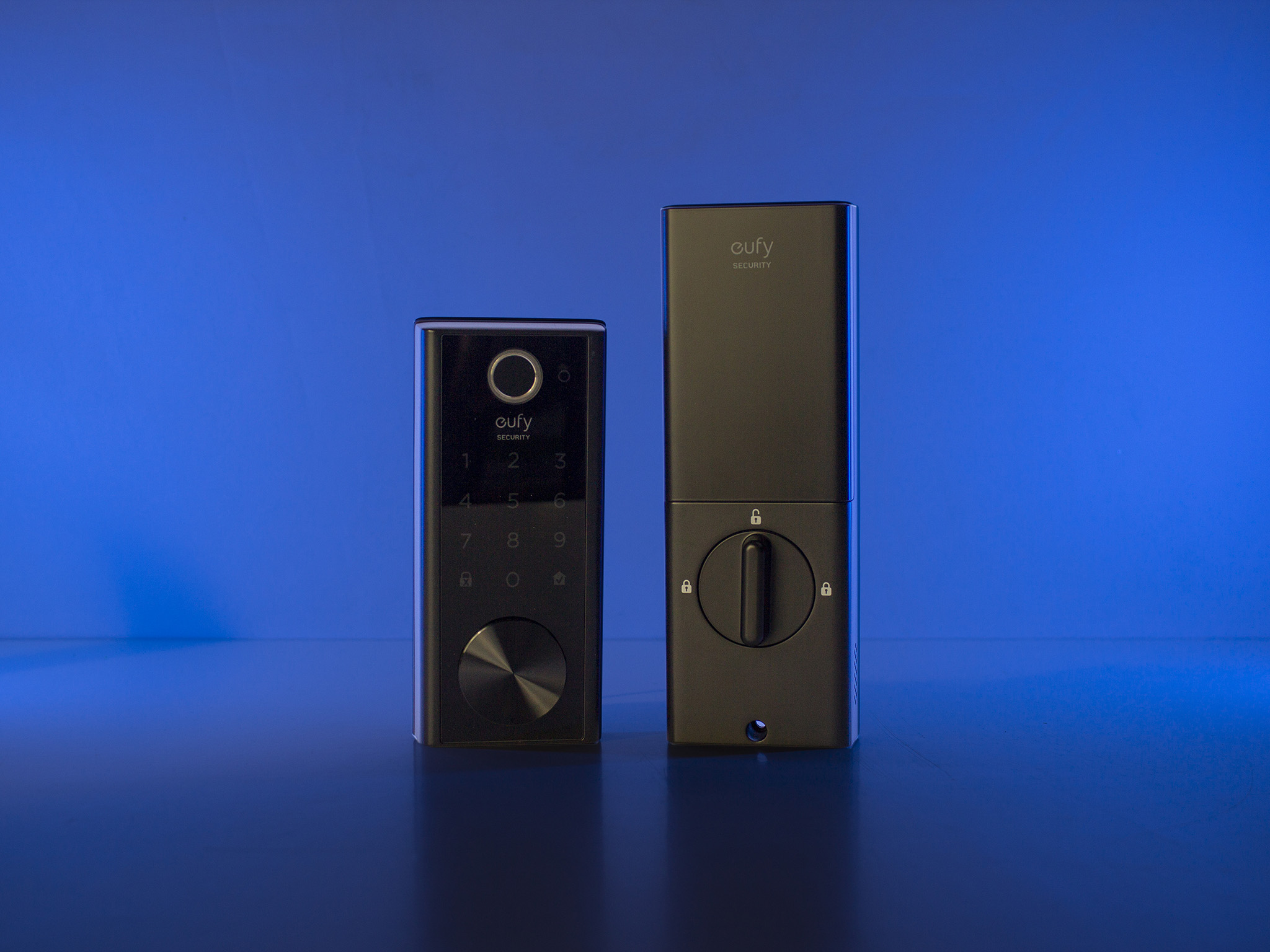
Who needs keys when you have fingerprints?
For years, the best smart locks have been trying to get rid of keys, but the experience often falls short of the simplicity of a key. Sure, you could use the PIN pad to unlock the door, but, personally, inputting a PIN always feels like an easy way for someone to gain easy access by watching you tap (or looking at the fingerprints on that shiny keypad). Smartphone entry is a great alternative — especially when locks like the August Wi-Fi Smart Lock will automatically unlock when you're in range — but that, of course, requires you to have your phone on your person, making it no better than a key that can be left in the house accidentally.
Eufy seems to have figured out the ideal solution to both of these problems and, ultimately, the best way to get rid of the keys you'll find on any smart lock: a fingerprint scanner right above the keypad. This simple-yet-ingenious solution seems like a no-brainer for a smart lock, and, really, it is. Eufy isn't the first brand on the market to do this — a quick search on The Home Depot's website yields several options you can pick up today — but Eufy's build and design are far more elegant-looking than most of those options, all while still offering smartphone and keypad unlocking options.
Is this the ultimate smart lock? In many ways, it certainly is.
Eufy Wi-Fi Smart Lock
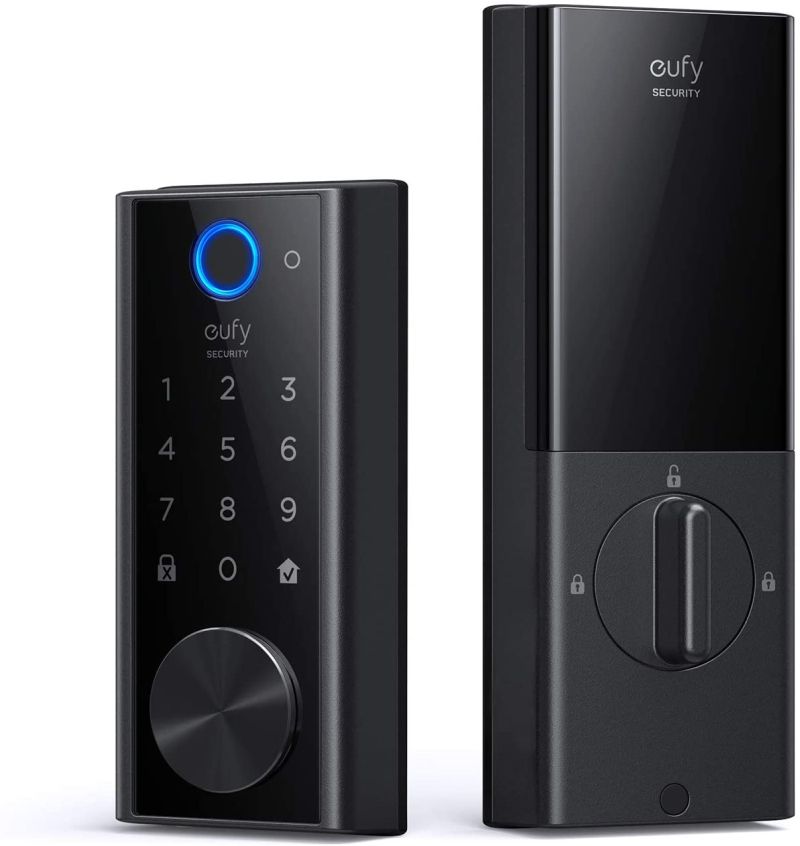
Bottom line: A bevy of ways to lock and unlock this smart lock make it the most versatile smart lock you can buy. Eufy's mostly great app is well organized, and the Eufy Wi-Fi Smart Lock can connect with your favorite virtual assistant for use in routines or voice control. Rounding out the smart package is a gorgeous exterior that's as tough as it is beautiful, making this an almost perfect product.
The Good
- Fingerprint reader is wonderful
- Sleek style and sturdy build
- Excellent smart assistant integration
- Lots of extra security-minded features
- Auto-lock is smarter than most
- Built-in rechargeable battery
The Bad
- Rather large
- Micro-USB charging ports
- Only supports 2.4GHz Wi-Fi networks
$250 at Amazon $250 at Best Buy $250 at Eufy Life
Eufy Wi-Fi Smart Lock review:
- Price and availability
- What you'll like
- What you won't like
- The competition
- Should you buy?
Eufy Wi-Fi Smart Lock: Price and availability
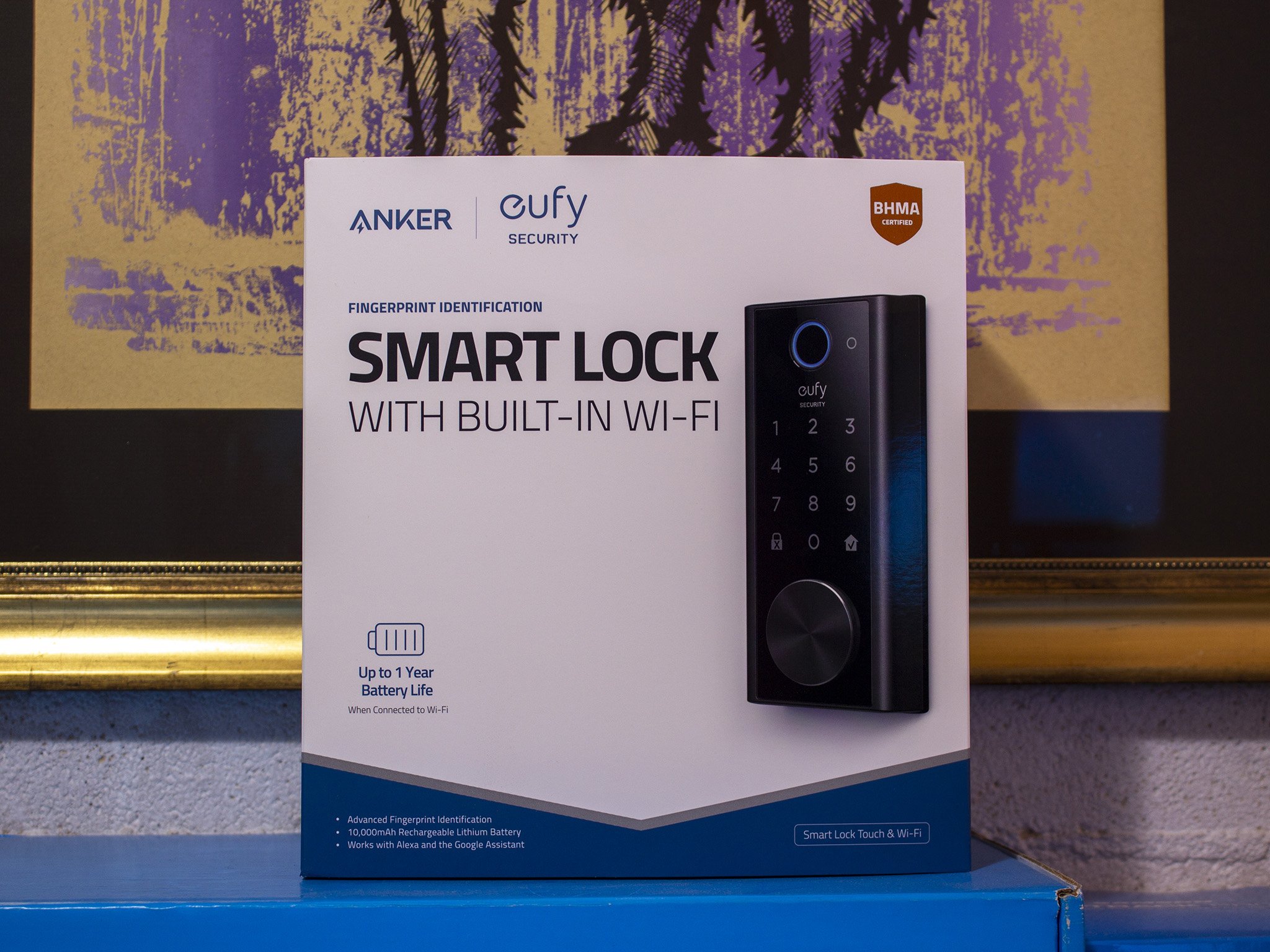
The Eufy Wi-Fi Smart Lock is available at some major retailers like Amazon, Best Buy, and Eufy's own website for $249.99. This package comes with everything you'll ever need for the smart lock, including that rechargeable battery.
At this time, Eufy only sells the Eufy Wi-Fi Smart Lock in black. There are currently no faceplates or ways of changing its outward appearance.
Eufy Wi-Fi Smart Lock: You'll love this lock
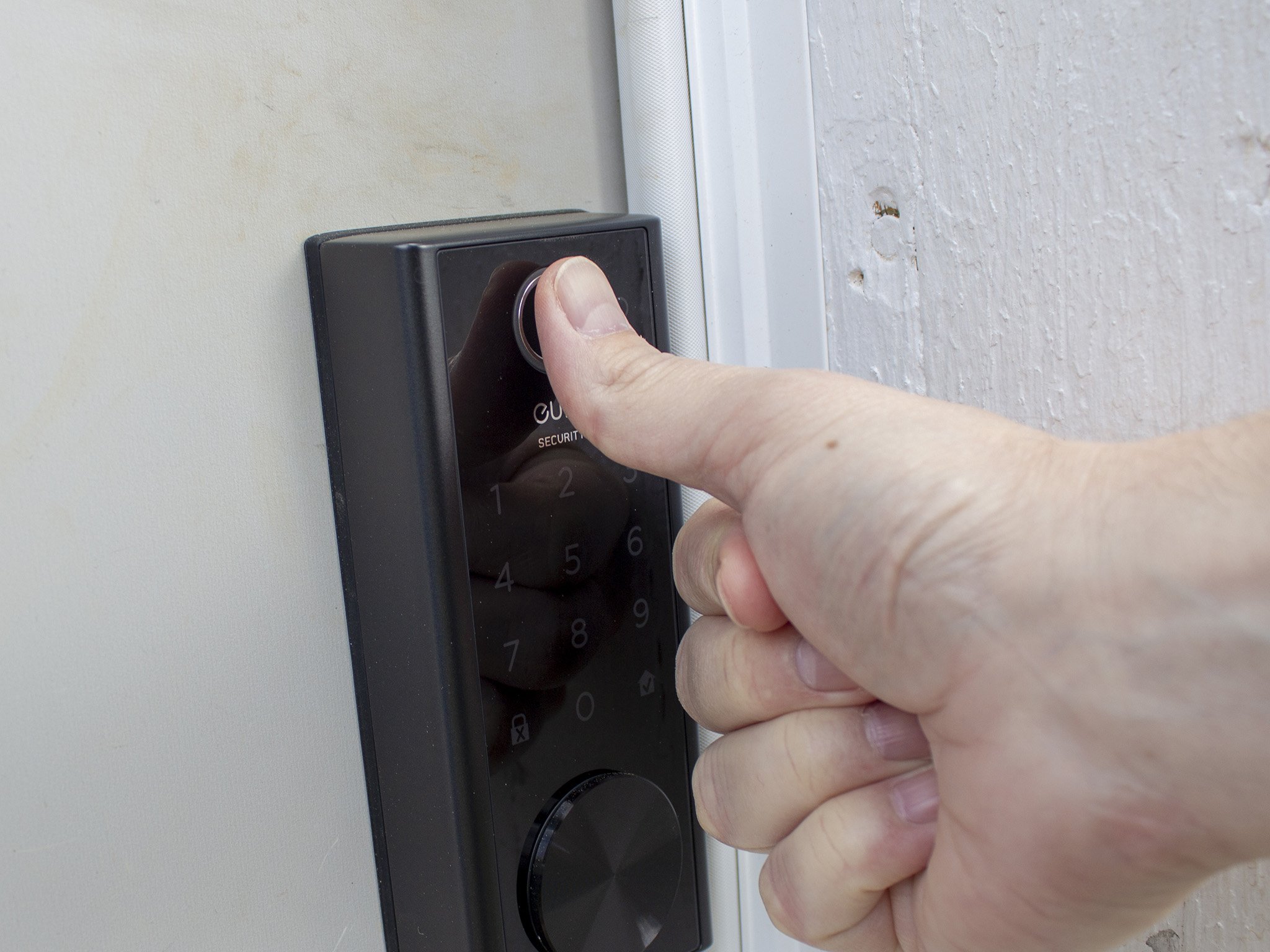
Far too often in the smart lock space, it feels like manufacturers are out of their league. Either it's a great lock that just doesn't feel very smart, or it's a well-connected smart home appliance that feels like a lock was tacked on. The balanced that Eufy has achieved with the Eufy Wi-Fi Smart Lock is impressive because it feels like it doesn't fit into either of these categories, a rare win for a company that's primarily focused on smart home products.
In fact, the enumerable ways of locking or unlocking the Eufy Wi-Fi Smart locks are unparalleled: a PIN, a fingerprint, a smartphone, your voice, or even automatically. Most smart locks offer maybe one or two of these features but stop short of offering all of them. It's obvious that Eufy concentrated on the fact this is, first and foremost, a lock and not just another smart device, all while still offering every single one of the smart features you would expect from a $250 lock.
It's obvious that Eufy concentrated on the fact this is, first and foremost, a lock and not just another smart device.
This particular smart lock is visually identical to its cheaper cousin, the Eufy Smart Lock, but features Wi-Fi connectivity built right into the product. That means you won't need a Wi-Fi bridge just to get it connected to the Internet, enabling a slew of additional features right out of the box. This means things like hooking your lock up to Alexa or Google Assistant — which enables its use through routines or via your voice — as well as control from the Eufy smart home app from anywhere.
In the past, we've criticized Eufy for not supporting two-factor authentication. Thankfully, the company has added this ridiculously important feature in a world filled with data leaks and bad security alternatives. Eufy offers both SMS and email-based two-factor authentication but, if you weren't aware before, you should never use SMS-based two-factor authentication because it poses a greater security threat than having it disabled, oddly enough. Kudos to Eufy for mostly doing it right, although there should be an option for app-based 2FA, as well.
Installation of the lock was identical to what I've experienced with other smart locks. The inside lock is a separate piece from the keypad (duh), both of which come together with a series of screws, connecting with the deadbolt in the middle. Eufy ships its smart lock with a 10,000mAh rechargeable battery, which is charged via a micro-USB port either on the battery itself or the underside of the keypad-portion of the lock — another well-thought-out design that means you can even charge the battery from the outside of your home if you somehow let it drain completely. It's a shame it's micro-USB and not USB Type-C, but at least Eufy includes a cable in the box.
It's a lock that looks and feels like it costs $250.
This makes it easy to connect a portable battery pack and set it on top while charging instead of removing the entire battery. It also lasts an entire year, according to Eufy. After at least a month of usage, it's still showing a full battery which bodes well for these claims. If you don't have it connected to Wi-Fi at all, the battery will last even longer.
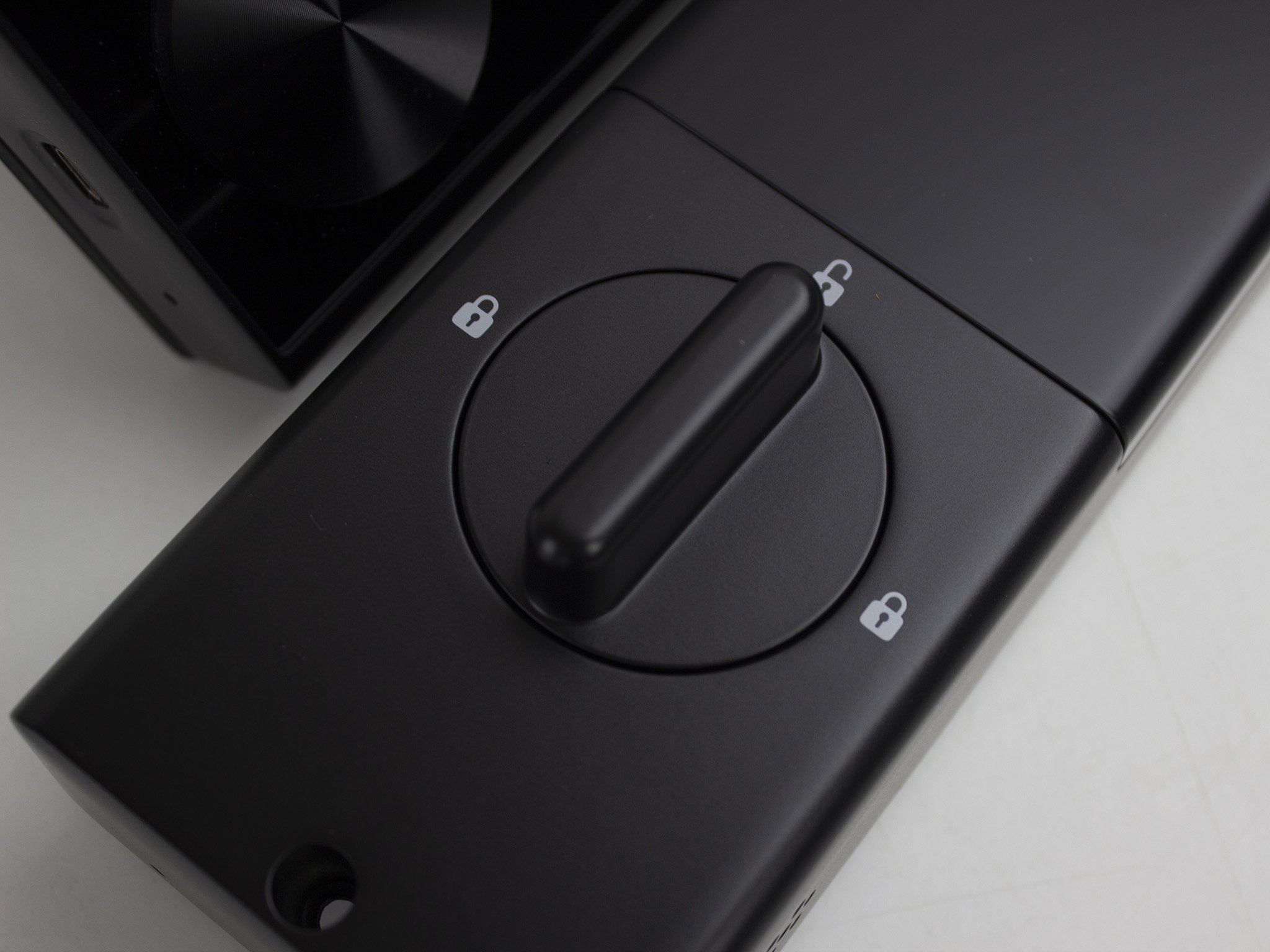
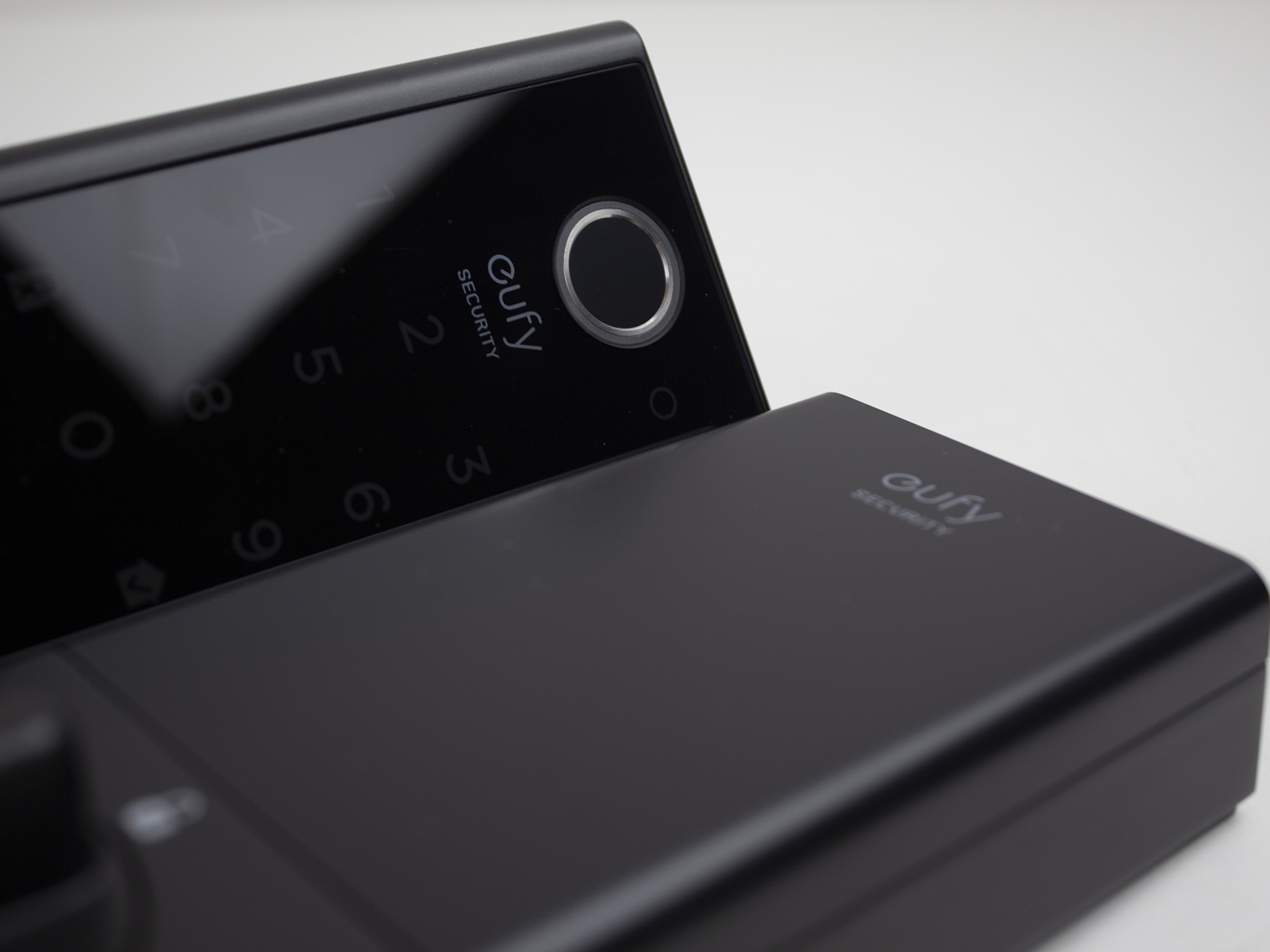
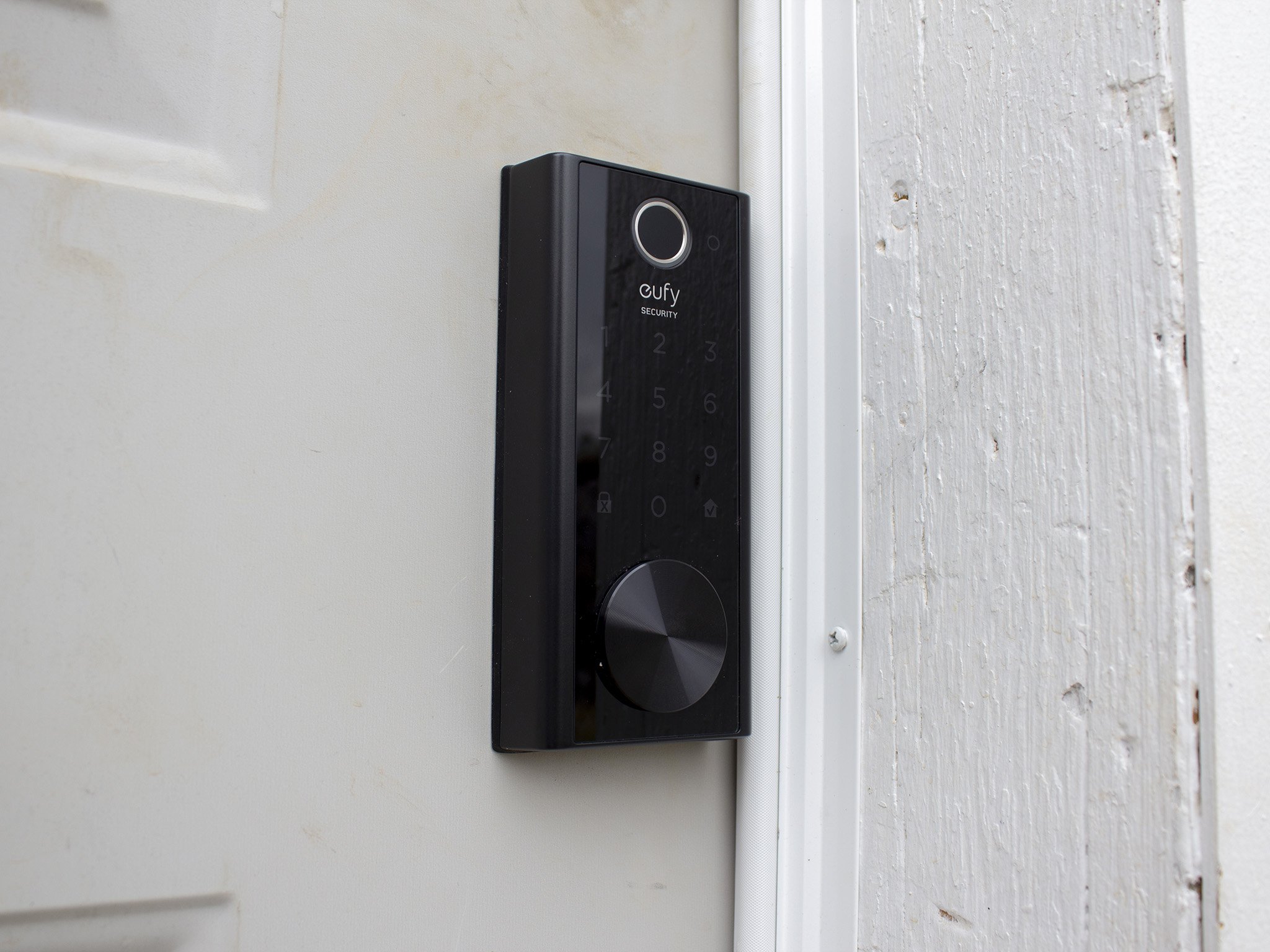
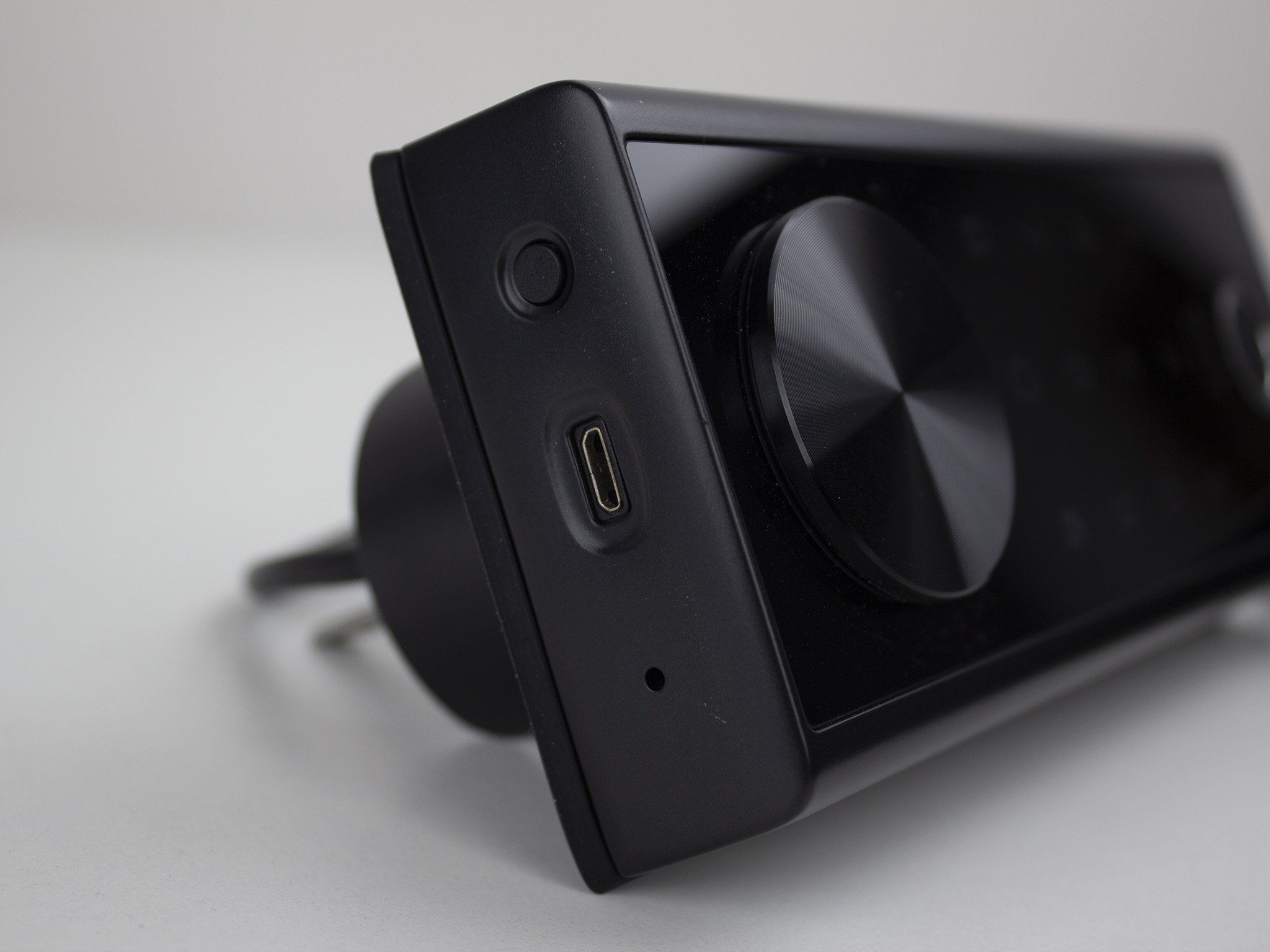
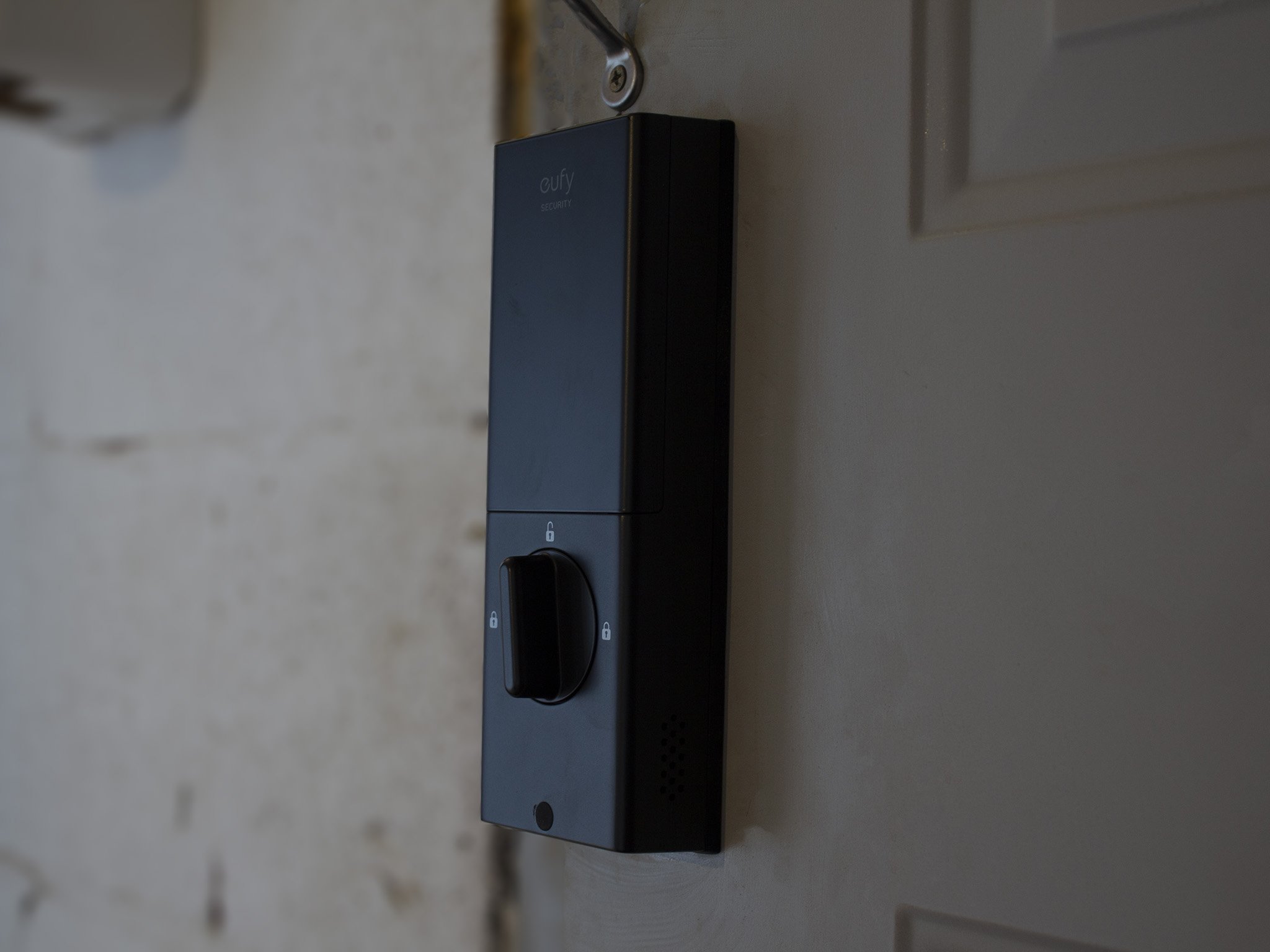
The lock is constructed just as well as it looks, with a sleek black exterior and a heavy metal build everywhere but the battery cover and the keypad. It's a lock that looks and feels like it costs $250, which is always a plus when you're spending this much on something. Numbers on the keypad are easy to touch to enter, and the inner lock controls slide the deadbolt as gracefully as you could possibly imagine, but neither of these are my favorite physical feature of this lock: that would be the fingerprint scanner.
This fingerprint scanner operates just as it would on a smartphone. It's fast, accurate, and, of course, transforms the lock into a truly keyless wonder. Who wants a smartphone or keys when you've already got all the keys built right into your hands? I sure don't want to deal with those things, and this makes it impossible to ever forget your PIN, your phone, or even your keys.
If that's not enough, the lock automatically locks itself when it detects that the door is closed, either instantly or after a customizable period of time. If you're dead-set on using the PIN pad, Eufy even supports a "randomized PIN" feature that lets you enter several random numbers after your actual PIN, helping to keep thieves from trying to guess your PIN just by looking at the fingerprint marks on the pad. This, combined with all the other great connectivity and security-minded features, makes the Eufy Wi-Fi Smart Lock feel like more than just smart: it's genius.
Eufy Wi-Fi Smart Lock: Negatives in the footnotes
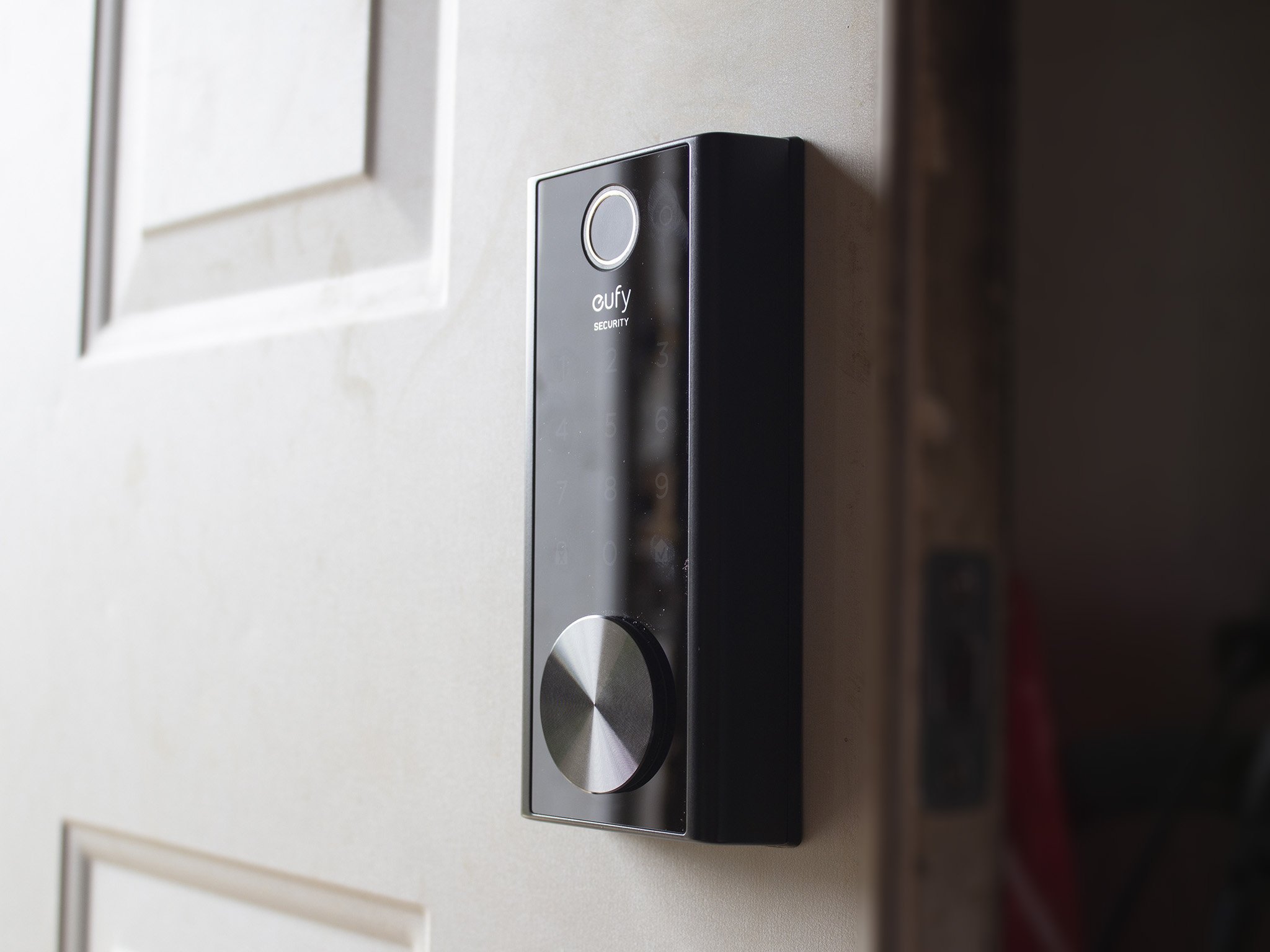
Eufy's close attention to detail means there are few, if any, notable negatives for this lock. Build-wise, there's no getting around the size of the lock: it's quite large and might look a little funny if you've never had a smart lock before. I actually had to move the door handles up on both the inside and outside of my basement door where this lock is mounted; something I didn't have to do with the August Smart Lock that was previously on the door. This isn't out of the norm for most smart locks though, so this isn't some ostensible sin that Eufy is committing.
Something you might want to note about that beautiful exterior, though: because it's shiny, it is both a fingerprint and dust magnet, so if you're OCD about things looking their best, this one might regularly attract a bit more grime than you might like.
Lack of 5GHz Wi-Fi support could be a real problem for some homes.
One outlier to this attention to detail is the door sensing feature. It'll tell you when it's locked or unlocked, but it won't tell you when the door is open or closed from the app, even though the lock itself can understand these things. It can tell the door is closed but doesn't tell you in the app. I also wish there were a quicker way to lock or unlock from the Eufy app, as it takes at least three clicks to get to this point. Even integration into Android's widget-based power menu would be great.
Eufy Wi-Fi Smart Lock: Competition
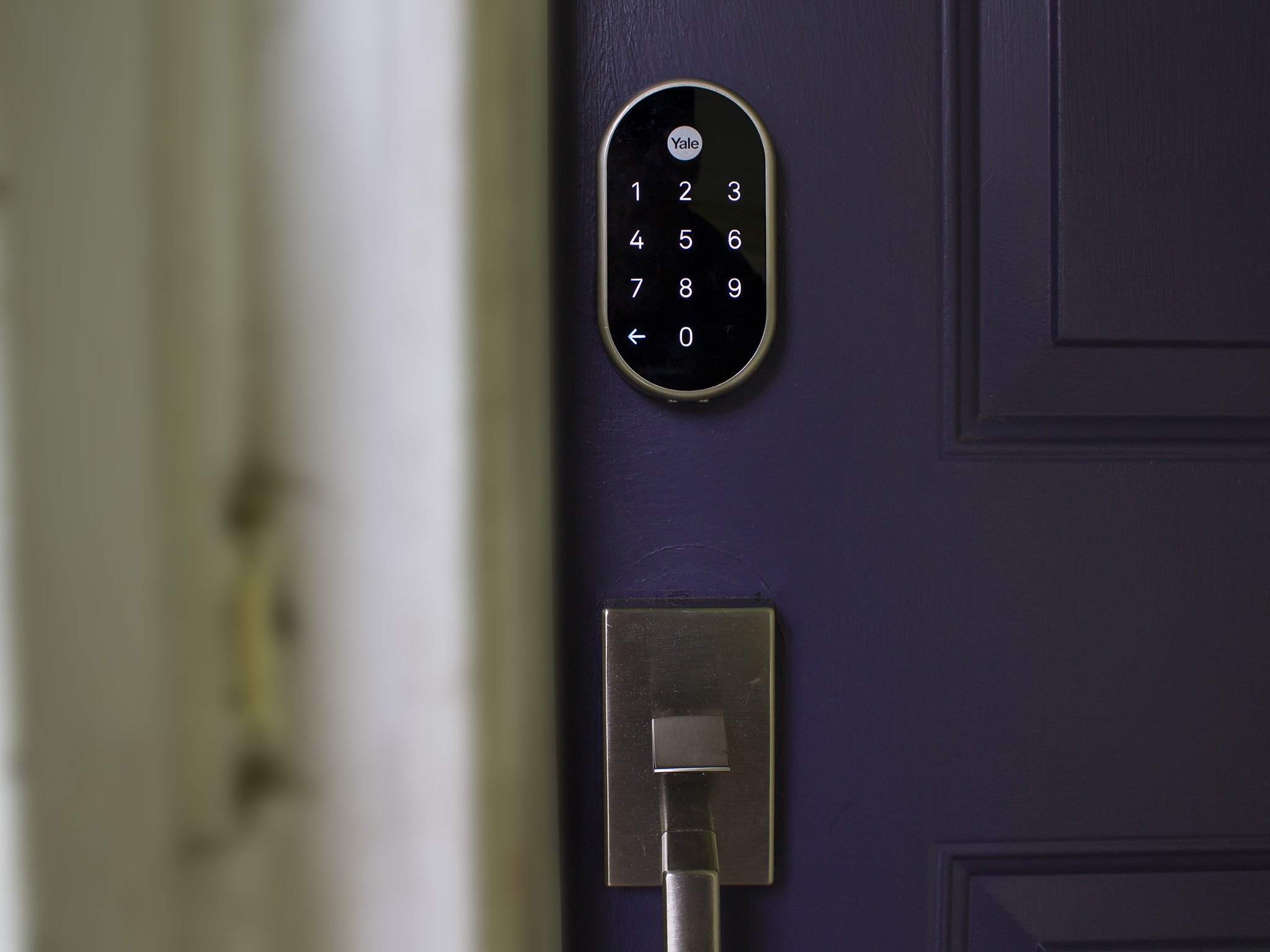
The Nest X Yale Smart Lock is the most visually similar product that comes to mind when looking for competing alternatives. I've got this one on my own front door and have used it for years now, but it's got some glaring negatives when compared to the Eufy Wi-Fi Smart Lock. While it integrates a little better into the Nest/Google ecosystem, it's missing the fingerprint scanner, the smart auto-lock feature that only locks when the door is actually closed, and it relies on AA batteries to power it. It's also $30 more expensive.
August makes a pretty fantastic alternative in the August Smart Lock, which only replaces the internal portion of your existing deadbolt and can be paired with August's physical keypad. Some people might prefer to keep the keys — an option that August has specialized in for years — and August makes the only smart locks on the market that'll tell you the status of the locks and whether the door is open or closed, thanks to a special magnet. That last part is one step above what Eufy offers, but it's also $10 more and needs a bridge to connect to Wi-Fi.
The Lockly PGD 728F offers feature parity with Eufy in the physical sense, all while offering the ability to use a traditional key as well. It's a less expensive route to go and even offers a nifty number-shifting keypad for extra security, but there are a couple of glaring disadvantages. First up, the app isn't all that great and doesn't feature the connectivity that Eufy's does. Second, the auto-lock functionality doesn't check to make sure the door is closed first. Third — and this one is largely subjective — I think it's a pretty ugly lock, especially compared with what Eufy built here.
Eufy Wi-Fi Smart Lock: Should you buy it?
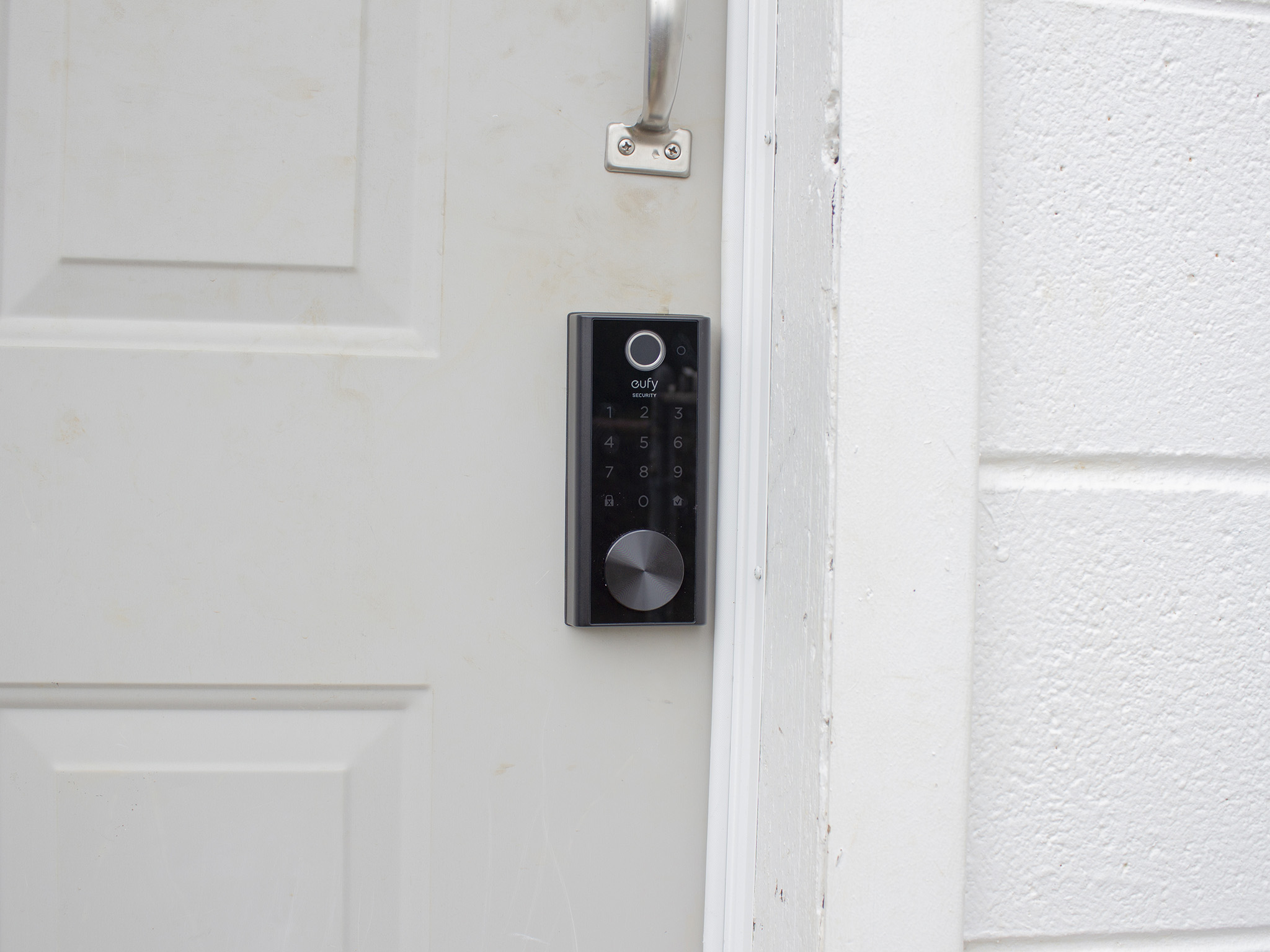
You should buy this if ...
- You want to ditch the keys without having to worry about remembering something else
- You want a lock that can automatically lock only when it senses the door is closed
- You want a smart lock that ties in with third-party services in a way that feels native
You shouldn't buy this if...
- You want to keep your existing deadbolt
- You prefer having physical keys
- Having a large lock is problematic
Most aren't as well-thought-out as the Eufy Wi-Fi Smart Lock when it comes to smart locks. Aside from looking great and being built even better, this smart lock lets you confidently ditch your keys, smartphone, and even a PIN in favor of a more secure method you always have with you: your fingerprints. Deep tie-ins with your favorite virtual assistant and the ability to detect if the door is closed before engaging the deadbolt make this feel like a genius lock instead of just a smart one. It's really a shame it doesn't support 5GHz networks, as some homes might be shut out of connecting what could otherwise be the single-best locking experience.
While a lack of support for 5GHz networks could cause a problem, most routers have the ability to broadcast a second 2.4GHz-only "guest" Wi-Fi network, which I've found to be the preferable solution for these sorts of problems. After all, Eufy is far from the only smart home company that doesn't support 5GHz networks for some of its IoT products, a side-effect of relying on the same hardware partners that only manufacture low-power solutions.
But that's the only real big negative in a product that would otherwise be considered a nearly-perfect experience. Half a dozen ways (or more) to unlock, including one that requires nothing more than the fingerprints you were born with. Having finally added proper two-factor authentication support and deep tie-ins with Google Assistant and Amazon Alexa, the Eufy Wi-Fi Smart Lock truly feels like a proper smart home security device instead of just an IoT device with some novel features tacked on. This one is a must-buy for any homeowner looking to totally replace those aging deadbolts.
Eufy Wi-Fi Smart Lock

Bottom line: Eufy Wi-Fi Smart Lock is the full package, with great looks, a strong built, and even better features. Ditch the keys and never worry about having to remember your phone or a PIN again thanks to a powerful and fast fingerprint scanner, intelligent auto-locking that makes sure the door is shut first, and a great app that ties into all your favorite smart home services.
$250 at Amazon $250 at Best Buy $250 at Eufy Life
08/04/2021 11:30 AM
FlixOnline app busted for malicious intent, banned from Play Store
08/04/2021 02:36 PM
Galaxy S21 Series Is Losing Its Trade-In Value Like Crazy
08/04/2021 02:34 PM
Fitbit Wearables May Soon Start Measuring Your Blood Pressure
08/04/2021 07:46 PM
HMD revamps its Nokia smartphone lineup with six new affordable models
08/04/2021 04:30 PM
How To Enable Call Forwarding On Verizon
08/04/2021 04:14 PM
Nokia's newest phones offer up to three days of battery life for under €400
08/04/2021 02:35 PM
- Comics
- HEALTH
- Libraries & Demo
- Sports Games
- Racing
- Cards & Casino
- Media & Video
- Photography
- Transportation
- Arcade & Action
- Brain & Puzzle
- Social
- Communication
- Casual
- Personalization
- Tools
- Medical
- Weather
- Shopping
- Health & Fitness
- Productivity
- Books & Reference
- Finance
- Entertainment
- Business
- Sports
- Music & Audio
- News & Magazines
- Education
- Lifestyle
- Travel & Local
